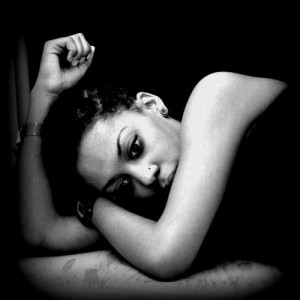
From Metta World Peace to Rudy Eugene, African Americans confronting mental health challenges are often portrayed as isolated examples of crazy or deranged people rather than members of a marginalized community suffering an illness. Beyond the black blogosphere and social networking events, the dismal state of black mental health treatment and awareness hasn’t been adequately covered by mainstream media.
Journalists, writers, and experts cite many reasons why mainstream media doesn’t cover African American mental health responsibly or consistently. Among them are racism, lack of context about how African Americans interact with the health care system, and stigmas that remain entrenched in the black community and discourage those who struggle with depression, schizophrenia, or other mental health problems from discussing them. Rarely do mainstream media outlets have the luxury of assigning a reporter to cover only mental health since most are now responsible for several beats simultaneously.
“Mental health in general has been a sub-beat in the mainstream media,” says journalist Amy Alexander, coauthor of Lay My Burden Down: Suicide and the Mental Health Crisis among African Americans. “It used to be that no one would write about mental health, and the way it would be covered would be piecemeal in the context of a report coming out from the Centers for Disease Control [and Prevention] or the National Institutes of Health. Or you would see a story pop up around a horrific event.”
Since Alexander’s book was published, little has changed. The bizarre case of Rudy Eugene, an African American in Miami who chewed off a homeless man’s face in May before being shot to death, made “bath salts” a buzz phrase nationwide. Eugene took his clothes off along the MacArthur Causeway from Miami Beach before attacking Ronald Poppo in what the Miami Herald called a “ghoulish, drawn-out assault in plain view on a city sidewalk.”
The head of the Miami police union publicly speculated that “bath salts,” synthetic stimulants believed to be the cause of psychotic episodes elsewhere around the country, prompted Eugene’s actions. But, according to the Miami-Dade Medical Examiner’s office, only marijuana was found in his system.
More likely, Kristen Gwynne wrote for Alternet, is that Eugene had a history of mental illness. “But pinning a tragedy to a drug scare is easier (and perhaps more lucrative) than explaining a nonexistent safety net for the mentally ill,” she wrote. “Bath salts, the mainstream media naively believes, can be banned and eradicated. Treating mental illness is a far more complicated story.”
Other than sensationalized portraits of individuals, the only consistent coverage of mental illness in the black community focuses on the psychological fallout of depression and other mental health issues facing black celebrities. These portrayals are opportunities for mainstream media to explore larger questions about the escalating suicide rate among black men, the entrenched stigma of appearing weak and vulnerable in the black community by seeking help, and the dearth of African American mental health professionals. Journalist and author Ellis Cose says these examples explore “celebrities much more so than the black community.”
Even when the topic is more about black celebrity than race, mental illness, particularly in famous athletes, is viewed as “evidence of a criminal character,” says David J. Leonard, author of After Artest: The NBA and the Assault on Blackness and associate professor in the Department of Critical Culture, Gender, and Race Studies at Washington State University.
“Media go immediately to focusing on the purported pathologies of the players themselves and don’t want to see what the broader context is,” Leonard says. “The history of race and mental health is a history of racism and the white medical establishment demonizing and criminalizing the black community through writing about their ‘abnormal personalities’ and being ‘crazy.’”
That history plays out in mainstream media coverage, but it also affects public discussions about mental health because it has so often been used to justify exclusion, segregation, and inequality in mental health treatment for African Americans. Recently, Bassey Ikpi, a writer and blogger working on a book about her bipolar disorder diagnosis in 2004, founded The Siwe Project, a global nonprofit for African Americans to share experiences about mental health in the black community. On social networking sites such as Facebook and Twitter, African Americans worldwide share stories of navigating mental health in a culture that actively discourages blacks from seeking talk therapy, Ikpi says.
At least partial resistance to mainstream reporting on black mental health is tied to blacks’ historical stoicism and belief that religion can serve as a substitute for professional therapy or, when necessary, medication.
“We have survived Jim Crow, beating, lynchings, and fire hoses,” says Mychal Denzel Smith, a mental health advocate, commentator, and writer. “We pride ourselves on strength. I spoke at a high school, and the teacher said, ‘Black folks just don’t have time to be depressed.’”
The Siwe Project is an important starting point for conversation outside mainstream media about the importance of self-care, Smith says.
“It’s about taking control and being proactive in defining our narrative for us instead of waiting for other people to do it. We know that there’s something wrong in our community. We have to be more proactive in addressing these issues and making sure that we take our health into account.”
Originally published by the Maynard Institute for Journalism Education.
- Follow us on Twitter: @inthefray
- Comment on stories or like us on Facebook
- Subscribe to our free email newsletter
- Send us your writing, photography, or artwork
- Republish our Creative Commons-licensed content

